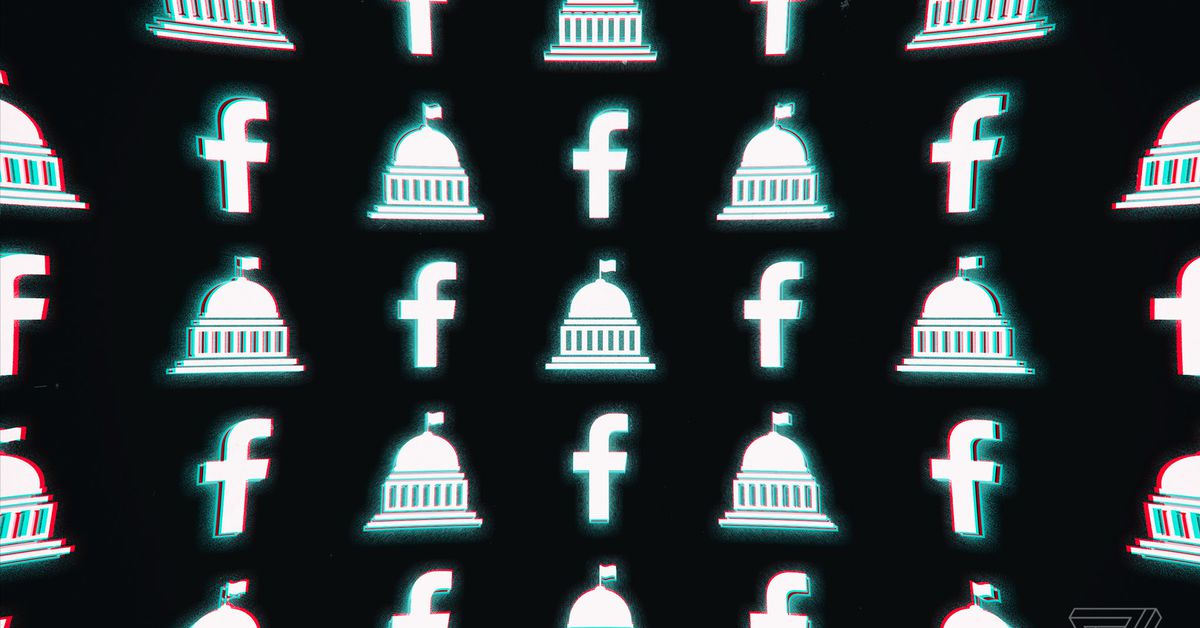
Facebook’s Oversight Board, the independent body empowered to review the social network’s most complex platform moderation decisions, is now accepting public comments on the company’s decision to “indefinitely” ban former President Donald Trump in the aftermath of the US Capitol attack on January 6th.
The two posts in question include the one-minute video Trump posted to his account on January 6th repeating false claims that the US election was stolen from him and offering words of sympathy to the Capitol rioters, some of whom were, at that moment, continuing to endanger the lives of Congress members and Capitol police.
The second is a written post in which Trump wrote, “These are the things and events that happen when a sacred landslide election victory is so unceremoniously & viciously stripped away from great patriots who have been badly & unfairly treated for so long. Go home with love & in peace. Remember this day forever!”
Facebook removed the video, took down the post, and subsequently banned Trump from its platform and Instagram for 24 hours before saying the ban would remain in place indefinitely and at the very least through Inauguration Day. Although Trump’s pages remain live, he has not been permitted to post anything on Facebook or Instagram since January 6th.
The Oversight Board has the power to overturn Facebook’s decision
Facebook referred its decision to the Oversight Board last week, citing the unprecedented actions company leadership felt compelled to take after Trump’s incitement of a riot that left five people, including one police officer, dead. The Oversight Board, which was formed last year and is made up of 20 experts from around the world with a large degree of background and employment diversity, expects to make a decision by the end of next month. The board took on its first batch of cases last month, but it announced its first rulings on five cases earlier this week, upholding only one removal and overturning four others.
“We believe our decision was necessary and right,” Facebook’s Nick Clegg, its vice president of global affairs and communications, said in a statement last week regarding Trump’s ban. “Given its significance, we think it is important for the board to review it and reach an independent judgment on whether it should be upheld.” Facebook is looking for clarity on not just whether it made the right decision to ban Trump, but also in what circumstances it should take comparable action against political leaders in the future.
Now, the Oversight Board wants the public to weigh in, too. The board is looking for comments regarding whether Facebook’s decision “complied with the company’s responsibilities to respect freedom of expression and human rights” and what it should do should a similar situation arise in the future.
It’s also looking for comments on how the company should “assess off-Facebook context in enforcing its Community Standards,” particularly when there is a threat of real-world violence; how it should “treat the expression of political candidates, office holders, and former office holders”; and whether Facebook’s rules around account enforcement like suspensions and bans should be made more accessible, as well as appeals around that enforcement.
The board is similarly looking for feedback on what considerations should be made to ensure Facebook’s rules are applied consistently around the globe, especially when weighed against Facebook’s “newsworthiness” exemption. That exemption is what Facebook has relied on in the past when defending its choice to keep up controversial Trump posts, like Trump’s comments regarding protests against police brutality last summer, and content from other world leaders that may violate its standards.
The Oversight Board says it will accept public comments until 10AM ET on February 5th, and it lists a number of requirements — submissions must be written in English and be no longer than two pages when written in 12-point Times New Roman font, to name a couple — that must be met to be considered.
The guidelines say only the Oversight Board will view the submissions to protect privacy and security, and those who decide to give feedback will be given a choice whether to have any of it published or attributed to them publicly as part of its deliberations and eventual ruling. The ruling will contain any public feedback in an appendix attached to the decision so long as the writer consents.
